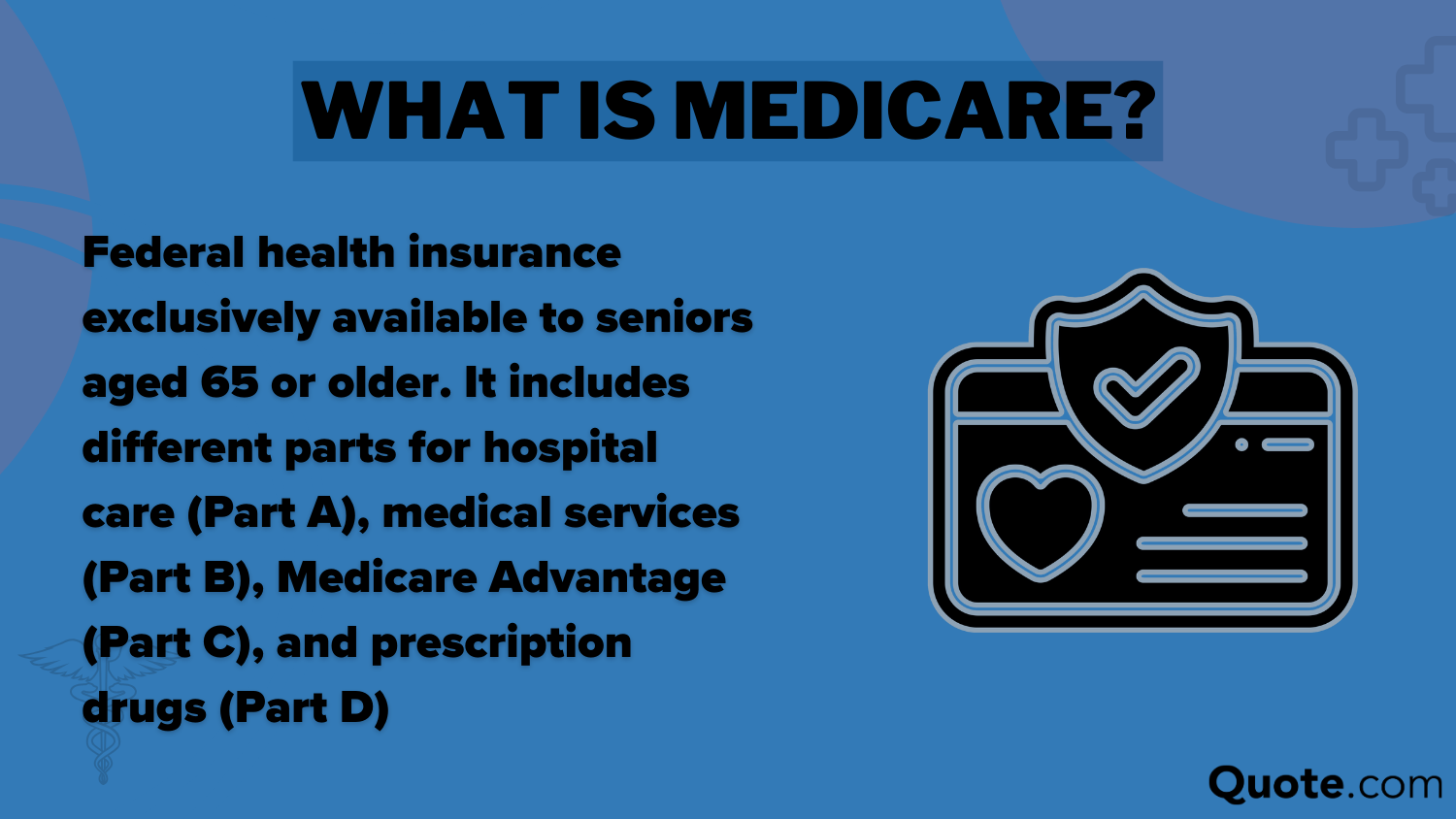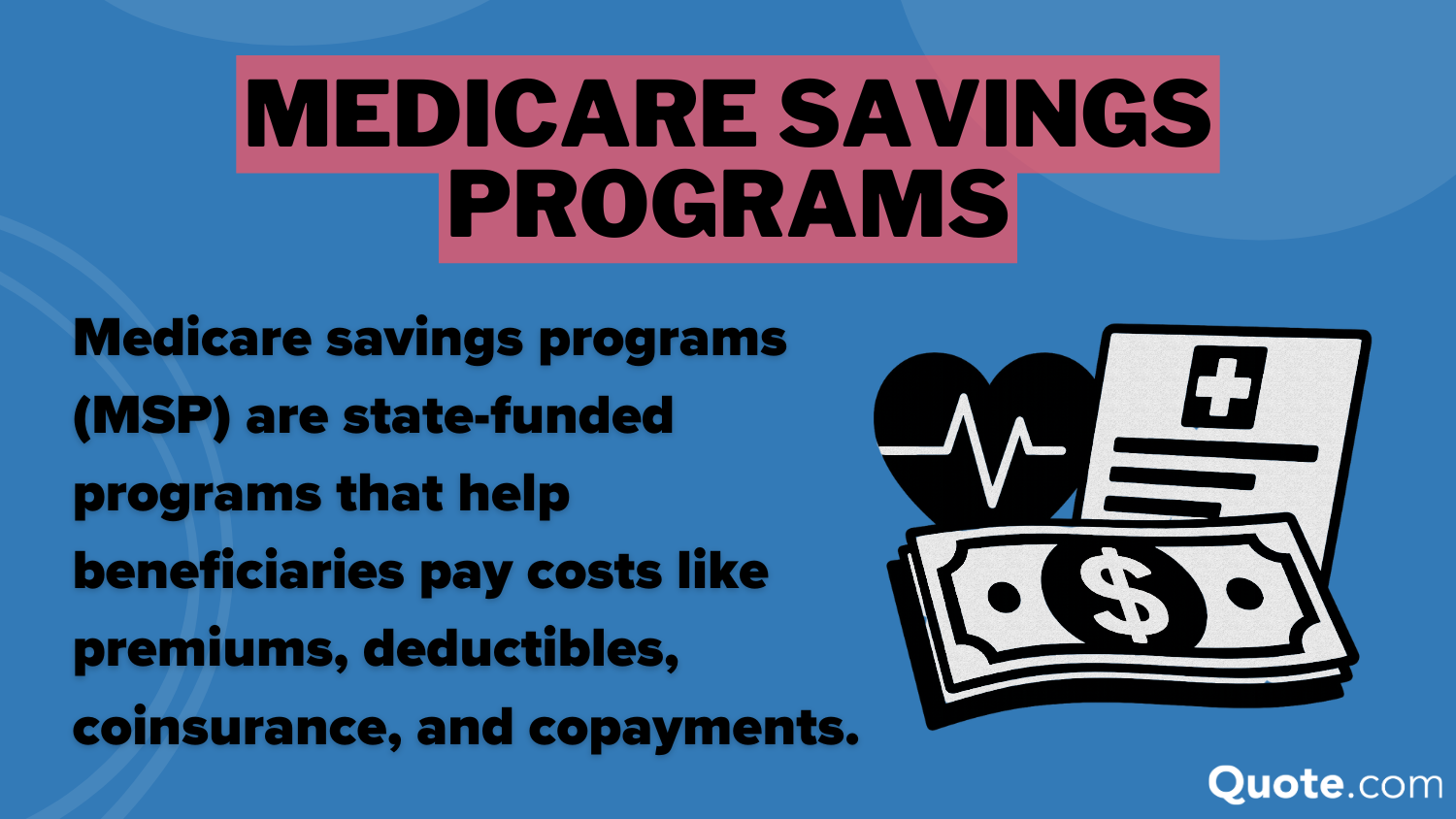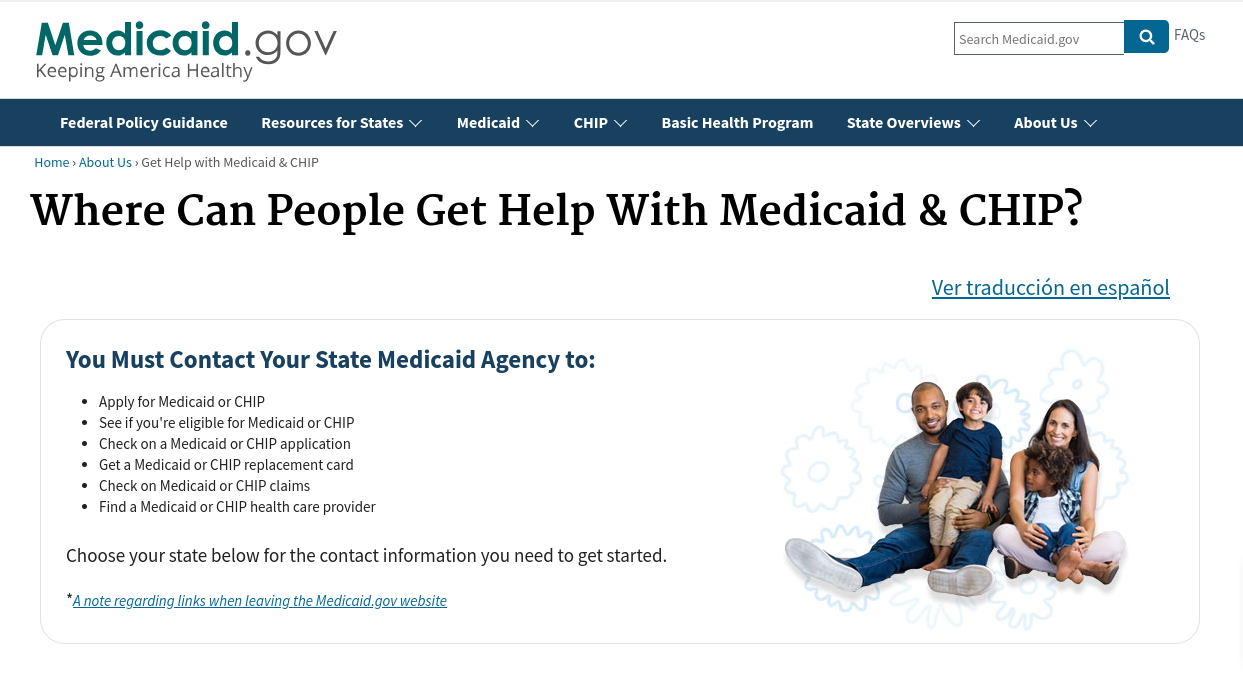What are Medicare Savings Programs? (Complete 2025 Guide)
Medicare Savings Programs for seniors help reduce insurance costs by covering Medicare premiums, deductibles, and more. You must have less than $10,000 in assets to qualify for Qualified Medicare Beneficiary (QMB), Specified Low-Income Medicare Beneficiary (SLMB), and Qualifying Individual (QI) programs.

Free Medicare Insurance Comparison
Compare Quotes From Top Companies and Save
Secured with SHA-256 Encryption
Michelle Robbins
Licensed Insurance Agent
Michelle Robbins has been a licensed insurance agent for over 13 years. Her career began in the real estate industry, supporting local realtors with Title Insurance. After several years, Michelle shifted to real estate home warranty insurance, where she managed a territory of over 100 miles of real estate professionals. Later, Agent Robbins obtained more licensing and experience serving families a...
Licensed Insurance Agent
UPDATED: Jul 22, 2024
It’s all about you. We want to help you make the right legal decisions.
We strive to help you make confident insurance and legal decisions. Finding trusted and reliable insurance quotes should be easy. This doesn’t influence our content. Our opinions are our own.
Editorial Guidelines: We are a free online resource for anyone interested in learning more about insurance. Our goal is to be an objective, third-party resource for everything legal and insurance related. We update our site regularly, and all content is reviewed by experts.
UPDATED: Jul 22, 2024
It’s all about you. We want to help you make the right legal decisions.
We strive to help you make confident insurance and legal decisions. Finding trusted and reliable insurance quotes should be easy. This doesn’t influence our content. Our opinions are our own.
On This Page
What are Medicare Savings Programs? These state-funded programs can help finance what your health insurance won’t cover, including prescription drug costs.
Social Security Medicare Savings Programs (MSPs) cover premiums, deductibles, coinsurance, and copayments through your state’s Medicaid program. The top three types of Medicare Savings Programs for seniors are Qualified Medicare Beneficiary (QMB), Specified Low-Income Medicare Beneficiary (SLMB), and Qualifying Individual (QI) programs.
You and your spouse must meet specific income and resource requirements to qualify, but there are different types of programs you could qualify for. Enter your ZIP code to start comparing Medicare insurance plans today.
- There are five types of Medicare Savings Programs
- Each Medicare savings plan comes with income and resource requirements
- Medicaid recipients can receive additional Medicare benefits
Medicare vs. Medicare Savings Programs
Medicare provides health insurance coverage to seniors for free or at a reduced cost, but you’re still responsible for out-of-pocket costs like deductibles and copays. That’s where MSPs come in.
Before you sign up for Medicare coverage, compare how much Medicare insurance plans cost. For instance, Part A premiums are typically free while Part C and Part D costs vary.
Medicare Costs by Plan Type
Medicare Plan Monthly Premium Annual Deductible Out-of-Pocket Max
Part A $0-$505 $1,632 N/A
Part B $174 $240 N/A
Part C $0-$200 $0-$200 $8,850
Part D $34 $0-$545 $2,000
Medigap $35-$488 $0-$2,800 $3,500-$7,500
Once you know how much you need to pay, you can learn how to qualify for different types of Medicare Savings Programs for seniors.
Enter your zip code below to view companies that have cheap insurance rates.
Secured with SHA-256 Encryption
Types of Medicare Savings Programs
What do all Medicare Savings Programs do? Each MSP helps cover all or a portion of out-of-pocket Medicare costs. You might also want to compare the differences between Original Medicare and Medicare Advantage to find more ways to save.
What are the three types of Medicare savings programs? QMB, SLMB, and QI programs are the most common examples of Medicare Savings Programs.
Qualified Medicare Beneficiary (QMB) Program
QMB plans cover Part A and Part B premiums, deductibles, coinsurance, and copayments for Medicare-covered services. You may still receive a bill for Part D prescription copayments from Medicaid.
Specified Low-Income Medicare Beneficiary (SLMB) Program
SLMB plans cover Part B premiums and provide assistance with prescription drug costs, but you cost-share for many medical services. This MSP works best for individuals with very few healthcare needs beyond regular checkups.
Qualifying Individual (QI) Program
The QI Medicare savings program is the most popular. It covers Part B premiums but requires yearly application because it’s only offered on a first-come, first-served basis.
Medicaid vs. Medicare Savings Programs
Medicare Beneficiaries who qualify for or are already enrolled in Medicaid can receive additional benefits with these plans:
- Qualified Disabled Working Individual (QDWI) Program: Available to individuals who meet income and disability requirements to cover Part A premiums but doesn’t provide full Medicaid benefits.
- Qualified Medicare Beneficiary Plus (QMB+) Program: Offers a higher level of coverage by including everything in QMB plans plus full Medicaid benefits.
- Specified Low-Income Medicare Beneficiary Plus (SLMB+) Program: Covers Part B premiums and provides full Medicaid benefits, with limited assistance from state Medicaid agencies for cost-shares.
Is the Medicare savings program the same as Medicaid? Both Medicare and Medicaid provide health insurance coverage, but Medicaid is partially funded by the state and available to low-income individuals of all ages. Get the full breakdown in our expert guide to Medicaid.
How to Qualify for Medicare Savings Programs
Medicare Savings Program eligibility depends on income and assets like property, retirement accounts, and other investments. The table below lists the federal requirements:
Medicare Savings Programs Monthly Income and Resource Limits by Policy Type
Qualifying Program Individual Married Couple
QMB Income Limit $1,275 $1,724
QMB Resource Limit $9,430 $14,130
SLMB Income Limit $1,526 $2,064
SLMB Resource Limit $9,430 $14,130
QI Income Limit $1,715 $2,320
QI Resource Limit $9,430 $14,130
QWDI Income Limit $5,105 $6,899
QWDI Resource Limit $4,000 $6,000
Some states don’t count certain types of income. Even if you earn more than what’s listed above, you could still qualify for savings depending on where you live. Compare health insurance plans and don’t hesitate to apply for savings anyway.
How to Apply for Medicare Savings Programs
Who qualifies for the Medicare savings program? Since MSPs are managed by state Medicaid programs, contact your local Medicaid office to apply. You can find the office nearest you at Medicaid.gov.
Follow these steps to prepare your application:
- Confirm Eligibility: Review the MSP income and resource limits.
- Complete Application: Get the application online or in person at the local office. Provide Social Security numbers, proof of residency, and proof of income.
- Submit Application: Submit the application online or in person. You may be required to scan or mail copies of your personal documents.
Follow up with the Medicaid office to ensure your application is being processed. Once approved, you will receive notification of your benefits, usually within 45 days.
Enter your zip code below to view companies that have cheap insurance rates.
Secured with SHA-256 Encryption
How to Save Money on Medicare
What are Medicare Savings Programs? MSPs are essential for managing healthcare costs, especially for those with limited income and resources.
“The Medicare Savings Program is important because it helps people who are struggling to make ends meet afford to get the medical care that they need,” says @AARPPolicy‘s Senior Policy Advisor Tobey Oliver in @AARP’s Policy Now video. https://t.co/eqbRNSxldo
— AARP Policy (@AARPpolicy) May 30, 2024
These state-funded programs pay for premiums, deductibles, coinsurance, and copayments. The main three types of Medicare Savings Programs are:
- Qualified Medicare Beneficiary (QMB)
- Specified Low-Income Medicare Beneficiary (SLMB)
- Qualifying Individual (QI)
Additionally, the Qualified Disabled Working Individual (QDWI) program supports disabled individuals with their Part A premiums. Exploring health insurance guides and savings programs online can also help you get cheaper healthcare.
To apply for MSPs, contact your local Medicaid office. The process involves confirming eligibility, gathering necessary documents, and submitting an application online or in person.
Enter your ZIP code to start comparing Medicare plans near you to find the most affordable health coverage.
Frequently Asked Questions
What are Medicare savings account plans?
Medicare Savings Programs (MSPs) are state-funded plans for Medicaid recipients to help cover out-of-pocket costs like copays and deductibles.
Can you use Medicaid with Medicare?
Yes, if you qualify for or are already enrolled in Medicaid, you can use it as your supplemental coverage to Medicare. Depending on the income and disability requirements, you may also enroll in QMB+ or SLMB+ savings programs. Check your Medicaid eligibility.
What are the four types of Medicare savings programs?
The four types of MSPs are:
- Qualified Medicare Beneficiary (QMB) Program: Covers Part A and Part B premiums, deductibles, coinsurance, and copayments for Medicare-covered services. You may still receive a bill for Part D prescription copayments from Medicaid.
- Specified Low-Income Medicare Beneficiary (SLMB) Program: Covers Part B premiums and provides assistance with prescription drug costs, but you cost-share for many medical services.
- Qualifying Individual (QI) Program: Covers Part B premiums and requires yearly application because it’s only offered on a first-come, first-served basis.
- Qualified Disabled Working Individual (QDWI) Program: Available to individuals who meet income and disability requirements to cover Part A premiums but doesn’t provide full Medicaid benefits.
Each plan comes with income requirements, so check with your local Medicaid office to make sure you qualify.
What is the difference between Medicare and a Medicare Savings Program?
Medicare is a type of health insurance available to seniors over 65 that covers medical care and hospital and hospice stays. Medicare Savings Programs are not insurance plans. MSPs pay for excess Medicare costs not covered by health insurance, such as deductibles and copayments.
Is Medicare free at age 65 for seniors?
Medicare Part A, which covers hospital stays and hospice care, is free for almost everyone over 65. Most beneficiaries are only responsible for Part B and Part C (Medicare Advantage) costs. Enter your ZIP to start comparing Medicare costs near you.
Does everyone have to pay $170 a month for Medicare?
This is the average cost of Medicare Part B premiums, which everyone is required to pay. If you can’t afford your Medicare premiums, apply for a Medicare Savings Program. QMB, SLMB, and QI programs all offer assistance for Part B premiums and other out-of-pocket costs. Learn how much Medicare costs.
What is a MSP that only pays for Medicare Part A premiums?
Qualified Disabled Working Individual (QDWI) Programs only cover Part A premiums for beneficiaries who meet income and disability requirements.
Who is exempt from paying Medicare Part B premiums?
Anyone who qualifies for a QMB, SLMB, or QI program is exempt from paying Part B premiums.
What is the income limit for the Medicare Savings Program?
While it varies for each plan, MSP income limits range from $1,275-$9,430/month for an individual and between $1,724-$14,130/month for couples.
How does the Medicare shared savings program work?
The Medicare Shared Savings Program is only available to people with Private Fee-for-Service (PFFS) health plans. This type of Medicare Advantage Plan comes with predetermined amounts for coverage through the Shared Savings Program. The Shared Savings Program is not a part of the Medicare Savings Program and is only designed for PFFS plans.
Does Medicare look at your bank account?
Medicare only looks at your bank accounts when you apply for a savings program. You don’t need to provide any financial information when enrolling in Original Medicare or Medicare Advantage.
How much money can you have in the bank if you’re on Medicare?
Medicare doesn’t check your bank accounts since there are no asset limits. The only requirement for Medicare is to be over the age of 65.
Enter your zip code below to view companies that have cheap insurance rates.
Secured with SHA-256 Encryption
Michelle Robbins
Licensed Insurance Agent
Michelle Robbins has been a licensed insurance agent for over 13 years. Her career began in the real estate industry, supporting local realtors with Title Insurance. After several years, Michelle shifted to real estate home warranty insurance, where she managed a territory of over 100 miles of real estate professionals. Later, Agent Robbins obtained more licensing and experience serving families a...
Licensed Insurance Agent
Editorial Guidelines: We are a free online resource for anyone interested in learning more about insurance. Our goal is to be an objective, third-party resource for everything legal and insurance related. We update our site regularly, and all content is reviewed by experts.


